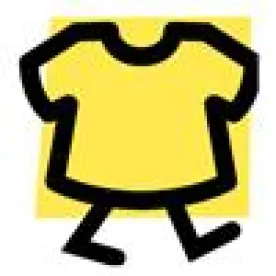As the leaves change and fall temperatures drop, things are heating up in federal court where The Ohio State University has filed suit against do-it-yourself t-shirt company Teespring Inc. for allowing individuals to produce unauthorized Ohio State apparel. Trading in its traditional red, white and gray uniforms for proper courtroom attire, Ohio State asserts numerous trademark claims, including infringement, unfair competition, passing off, and counterfeiting under the Lanham Act. (The Ohio State University v. Teespring, No. 14-00397 (S.D. Ohio First Amended Complaint filed June 6, 2014)). Ohio State argues Teespring's users have submitted designs that use unlicensed versions of Ohio State trademarks, including logos, buckeye leaves, images of head football coach Urban Meyer, and even the image of fans spelling out O-H-I-O (which Ohio State trademarked in 2012). Not surprisingly, Ohio State merchandise is a lucrative business. In fact, the university claims that Ohio State's licensing program has been the most profitable collegiate licensing program in the U.S. over the past five years, with royalties exceeding $45 million – when it comes to licensing its image, Ohio State definitely makes sure all its i's are dotted.
Teespring co-founders Walker Williams and Evan Stites-Clayton met at Brown University. When a favorite campus watering hole was shut down, there was an outcry on social media, and Williams and Stites-Clayton decided to make t-shirts around the buzz. After calling the local screen printer, who wanted to know exact quantities, sizes, and demanded upfront payment, the two seniors saw a new business opportunity combining e-commerce and crowdfunding. The founders put together a website that allows users to create and upload designs for their own t-shirts. Customers start a "campaign" that sets a goal for the number of t-shirts they wish to sell, and if the goal is met, Teespring manufactures the t-shirts and ships them to the customer.
According to the complaint, the university first cried foul about Teespring's use of its trademarks in December 2013. Teespring called a team meeting and assured Ohio State that it would take down any t-shirts to which the university objected. However, at least according to the complaint, potentially infringing t-shirts have continued to appear on Teespring's website. The university contacted Teespring again in January 2014, and although Teespring offered the same assurances, the university believes that the site continued to ship infringing Ohio State products, necessitating the current lawsuit.
The case against Teespring is not Ohio State's kickoff classic. In 2012, it filed a similar lawsuit in the Southern District of Ohio against Columbus-based Skreened Ltd. Skreened has a similar business model to Teespring and allegedly ignored warnings from the school to stop selling knockoff items containing its trademarks. Earlier this year, the court ruled in favor of Ohio State, finding that Skreened could not "take an ostrich approach to policing [its] business activities" regardless of "how much of a hassle it is to comply with the law." The court even deemed the case "exceptional" and awarded Ohio State attorney's fees.
In June 2014, Teespring filed a motion to dismiss, arguing that it had rejected and removed hundreds of potentially infringing campaigns from its website at the request of intellectual property owners, and had previously cooperated with Ohio State following the receipt of a takedown notice. According to Teespring, it utilizes a "robust intake filter" that identifies potentially infringing campaigns, enforces a review and response policy and a complaint submission policy for the benefit of rights holders, and takes a proactive approach that, Teespring argues, is consistent with precedent and mimics the procedures of the web's largest marketplaces. Moreover, Teespring argues that it cannot be contributorily liable because it does not encourage infringing activity and acts expeditiously when it gains specific knowledge of infringing listings. Teespring claims it responded to each request sent by Ohio State, and therefore cannot be liable solely for having general knowledge that its platform could be used for infringing activity. The company also points to its terms of service where customers must attest that they are "the owner, or licensee, of all rights associated with any created or uploaded artwork or text, including, but not limited to, the trademarks and copyrights that may be associated with said material."
Ohio State is asking for a permanent injunction against Teespring, profits from the sale of Ohio State merchandise and damages of $1 million per counterfeit item sold. It remains to be seen whether or not Teespring can tackle the trademark suit in the backfield, or whether Ohio State's legal team will make it into the open field and score a victory… and a buckeye leaf sticker on their helmets for outstanding play.








 />i
/>i

